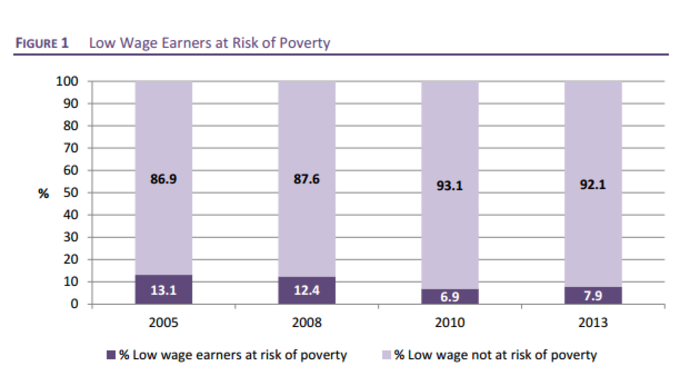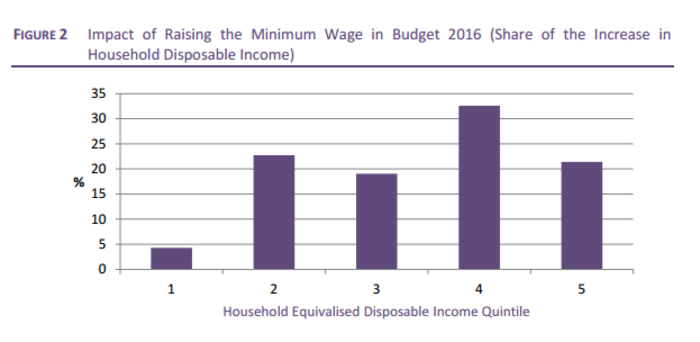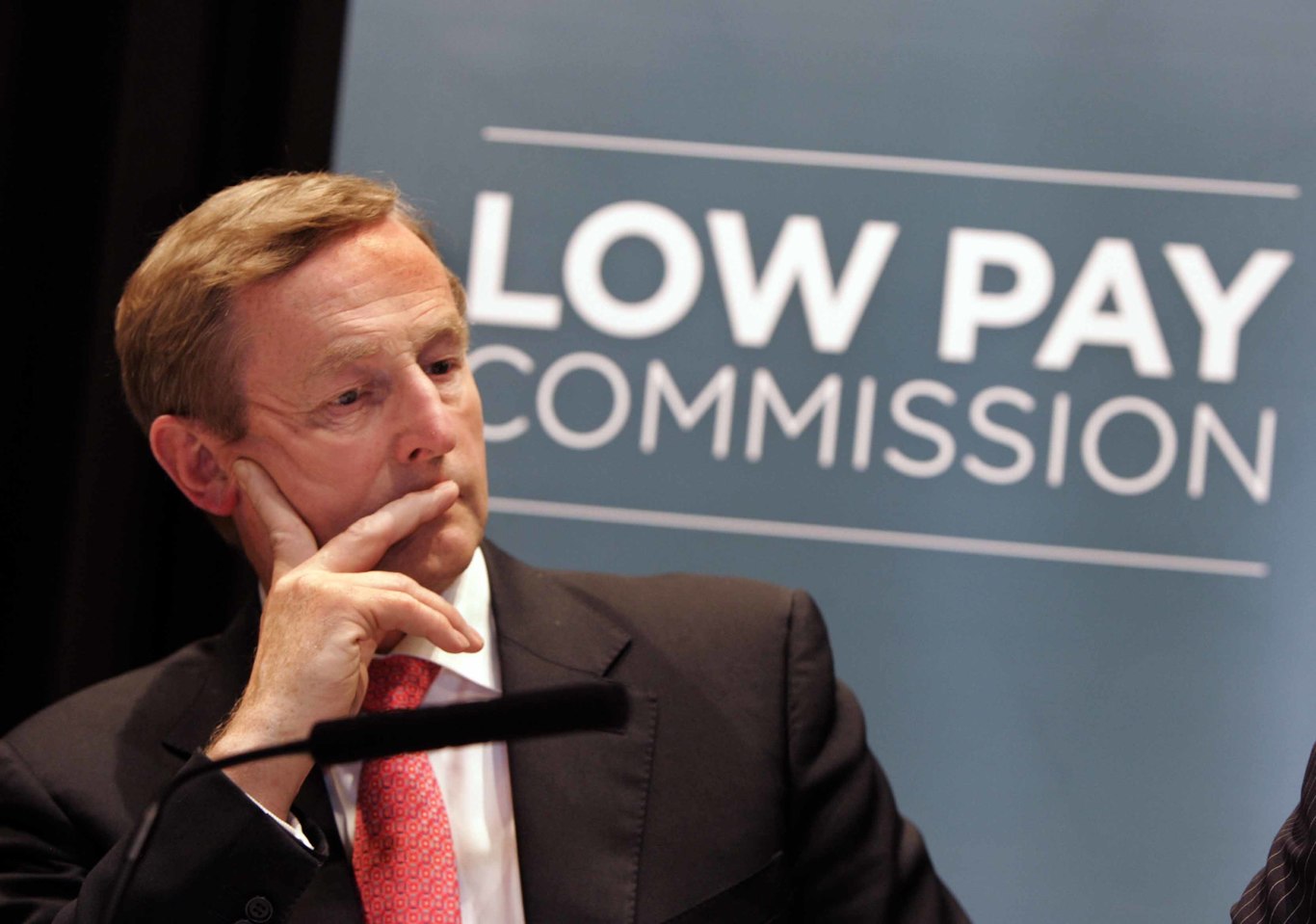Why increasing the minimum wage won't lift most households out of poverty
New research has found that most low-paid workers actually live in homes with above-average incomes.
RAISING THE MINIMUM wage will do little to lift Irish households out of poverty as many low-paid workers come from relatively comfortable homes.
A new research paper by the ESRI, one of Ireland’s most prominent think-tanks, found workers with low hourly rates of pay often lived in households with incomes close to or above the national average.
More than 11 out of every 12 low-paid workers came from homes where combined incomes sat above the poverty line, it said.
The research, based on Central Statistics Office data from 2005 to 2013, also found that, in a majority of cases, low-paid employees were not the sole earners in a household.
Even when low-paid workers are the sole earners, fewer than one in five fell below the EU’s “at risk of poverty” threshold, it said.
ESRI research professor Tim Callan said that although minimum wage policies “have several goals, (they) should not be expected to have a major impact on household poverty”.

The research comes as the government waits on a recommendation from the Low Pay Commission on lifting the minimum wage from €9.15 per hour. It has been under pressure from unions to increase the floor pay scale to a ‘living wage’ of €11.50 per hour.
The latest programme for government includes a commitment to “reducing poverty levels by supporting an increase in the minimum wage to €10.50 per hour over the next five years”.
More low-paid workers
The ESRI said that between 2005 and 2013 the number of low-wage earners in Ireland rose to make up nearly one-quarter of the workforce – a rate that is among the highest for any developed country.
The group is defined as all employees earning two-thirds or less of the national median hourly earnings.
In practice, that meant in 2013 anyone earning €11.40 or below was classed as a low-wage worker – close to the current proposed rate for the living wage.
However, the study said that very few people classed as low-paid live in households with incomes below the poverty line, which is defined as 60% of the national median disposable income.
The study found that rises in the minimum wage also tend to result in increases in disposable income for better-off households.
The ESRI said that raising the minimum wage had the least benefit for the bottom one-fifth of households, based on their disposable incomes, while those in the higher brackets received more of a bump.

Last month the Unite union published a report on low wages in Ireland that showed earnings in the Republic across almost all sectors were below the average for the original 15 EU member states last year.
However when it came to net annual income, the amount left over after taxes, Ireland was slightly above the average in 2014.






